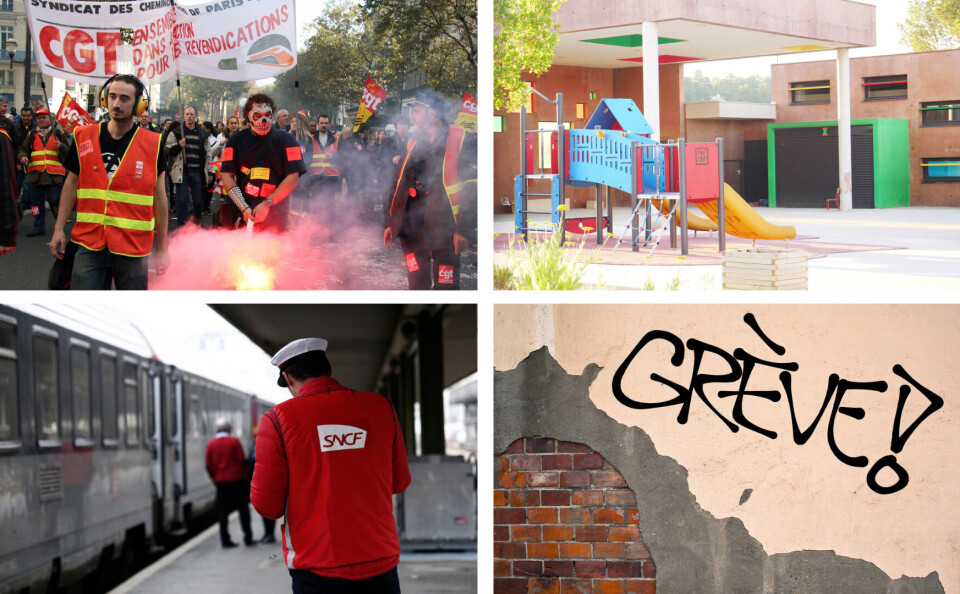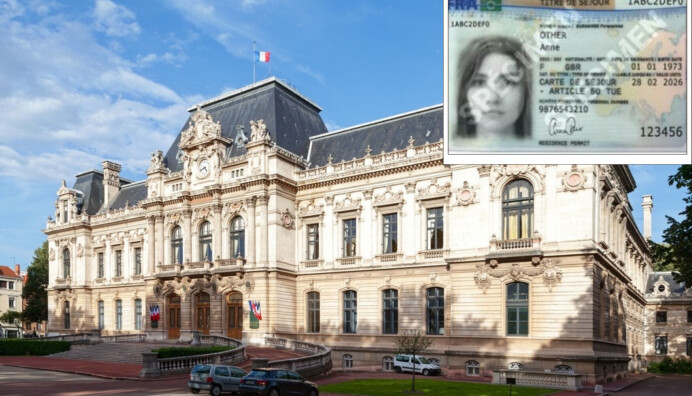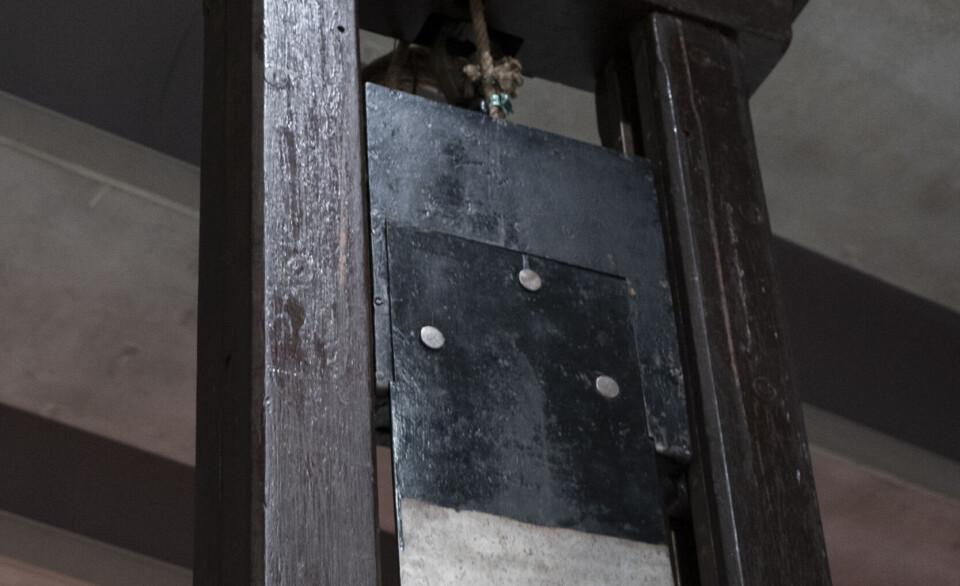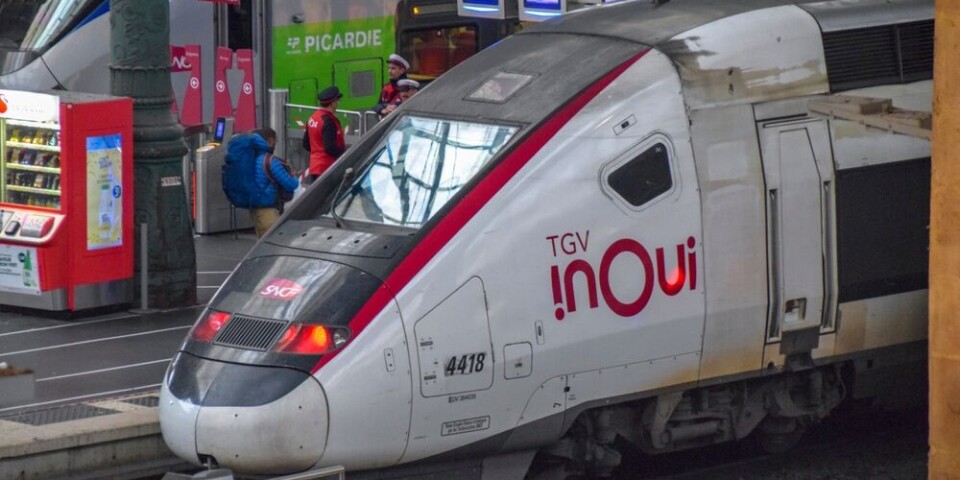-
Photos: tens of thousands of migrating cranes fly across France
The birds can be seen passing from the north-east to the south-west of the country
-
Nine face suspended prison sentences for online attacks targeting Brigitte Macron
Lawyers have denied that the accused acted as a ‘mob’, Mrs Macron’s daughter says the campaign badly affected her mother
-
Why farmers plan to block A10 and A71 motorways in France this weekend
Action comes after the publication of a study on water usage
Four questions about Thursday’s ‘spending power’ strikes in France
Ports, public transport and schools are amongst services expected to be affected

A national general strike is planned in France for this Thursday (September 29), which will mean disruption to trains, public transport, ports, schools and other public services.
The strike action, set to last one day only, has been called by various unions which are demanding a higher minimum wage, better pensions and the end of exemptions from tax and social security contributions for large companies, among other points.
Who is calling for strike action?
Various labour and trade unions including the Confédération Générale du Travail (CGT), the Fédération Syndicale Unitaire (FSU), and the Solidaires.
The Air Traffic controllers union, the Syndicat national des contrôleurs du trafic aérien, had previously planned for a separate three-day strike to take place between September 28 and 30, but this was cancelled after an agreement was reached with the the Direction générale de l’aviation civile. The union is not calling for its staff to participate in this general strike.
Read more: French air traffic controllers call off next week’s three-day strike
What sectors will be impacted?
The strikes could lead to heavy disruption around France as in the majority of sectors, protestors do not need to give notice before going on strike.
We outline some of the sectors that could be impacted below.
Trains: Several SNCF unions are calling for participation in the strike. Altered train schedules will be announced locally this week before Thursday. If you are planning to travel by TER, Ouigo, TGV or Intercité on Thursday, check the SNCF website for details from Wednesday to find out about any disruptions.
City public transport: Public transport could be affected in cities around France. For example, RATP, in charge of much of Paris’ public transport, has issued a strike notice from 22:00 on Wednesday until 07:00 on Friday.
Check local timetables for details for more information.
Ports: The Fédération Nationale des Ports et Docks is calling for a four-hour strike in every French port. This could mean disruptions to ferry and other boat services. If you are due to travel by Ferry on Thursday, check with the ferry company in advance. The strike times will be different in each port. In Marseille, for example, it will be from 09:00 to 13:00.
A spokesperson for the Port de Boulogne Calais said that cross-Channel services would not be affected by this strike and traffic will be running as normal.
Schools: Staff in nursery and primary schools (écoles maternelles et primaires) could strike – if they do they have to inform schools and parents 48 hours in advance.
This means that a decision should be made by today. To find out if your child or children’s school is affected, contact the school or your local mairie.
Staff in secondary schools do not have the same obligation to give advanced warning. The school should inform parents of any heavy disruptions.
Staff known as Atsem, those in charge of catering, extracurricular activities, crèche, etc. could also strike.
Public services: Other services could also be affected. For example, staff at local tax offices or at Caisse d'allocations familiales (CAF) centres could strike.
Why are the strikes taking place?
The CGT is calling for:
- France’s minimum wage, known as the SMIC, to be increased to €15 gross per hour, up from the current €11.07.
- An income for unemployed people at the same level as the minimum wage
- A special “independence” allowance for students
- An increase in pensions to a minimum of €2,000 gross per month
- Equal pay for men and women
- An increase in wages for apprentices
- Lowering the VAT rate to 5.5% for basic necessities
- Lower fuel prices
- An end to exemptions from tax and social security contributions (for large companies)
Are protests planned?
The CGT states that around 200 protests will take place around France on Thursday. It will mean people turning out in the majority of the country’s cities and larger towns.
For example, in Paris, the protests are expected to begin at 14:00 from the Place Denfert-Rochereau with the procession moving towards the Bastille.
The CGT has published an interactive map of the places where the demonstrations will take place, which you can see here.
Related articles
What’s coming up? The week ahead in France
London-Bordeaux trains, winter flights: Eight France travel updates
Inflation, climate, pensions: a tough ‘rentrée’ for French government
























